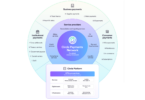Today the UK’s Treasury issued a consultation paper setting out a framework for dealing with a failed stablecoin provider. The emphasis is on a systemic “digital settlement asset” rather than a stablecoin that’s small. If there’s a collapse, the goal is to give the Bank of England the ultimate say, rather than purely the administrators.
Usually when an organization fails, the insolvency procedures focus on returning the maximum amount of money to the creditors. However, in the case of a financial market infrastructure (FMI), the continuity of a payment system often trumps the interests of the creditors. For this reason, there are Special Administration Regimes (SARs) for when a payment system fails.
There are two SARS in the UK, one for financial market infrastructures, the FMI SAR, which was designed for some of the UK’s major systems, such as the operation of Faster Payments.
The other is for Payment and e-money providers (PESAR). One might think that the PESAR might be appropriate given that stablecoins will be regulated in a similar way to e-money.
The Treasury believes that if a stablecoin were to collapse today, it might be unclear which SAR was appropriate. It prefers the FMI SAR rather than the PESAR because it gives the Bank of England oversight, whereas the FCA would have a supervisory role in the case of a PESAR. The Bank of England is relevant because of its focus on financial stability.
While currently the UK doesn’t have any systemically important stablecoins, it is a relatively attractive location for institutional settlement tokens. That’s because the Bank of England introduced a new kind of central bank account last year.
The new Omnibus account allows the ‘co-mingling’ of funds from different entities for wholesale settlement, which is ideal for tokenization. This can be used for entirely new payment systems based on blockchain tokens. Fnality, the FMI owned by 15 major financial institutions, is one example.
The Omnibus participants have to be regulated institutions with central bank accounts. And while the payments are interbank only, they can be on behalf of retail clients. If a system like this reaches scale, it’s essential to plan for all eventualities, including if something goes wrong.






